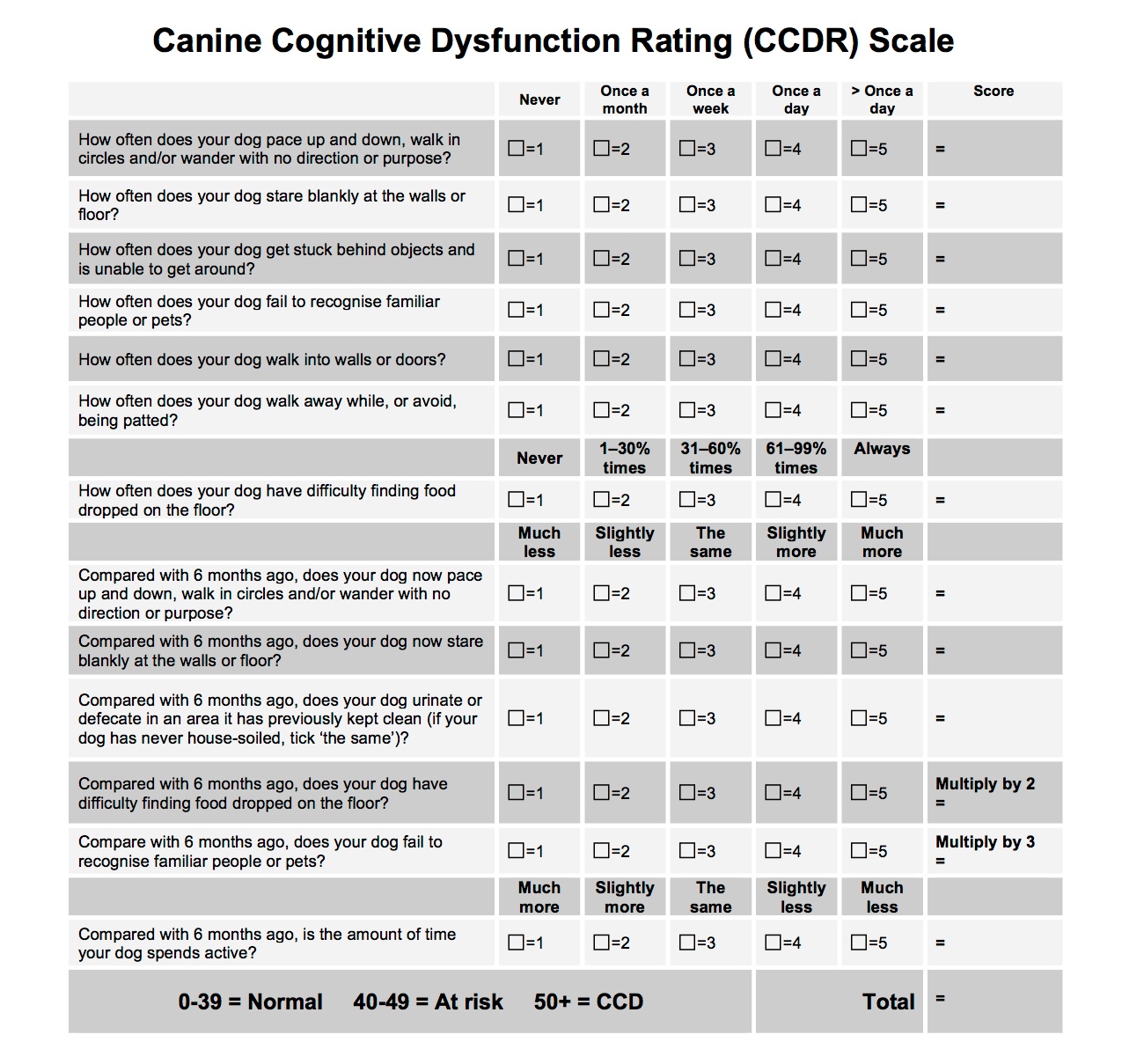Cognitive Dementia In Household Pets
"We all know that Alzheimer's disease and other dementias are among the most common conditions humans can encounter as they age.""What people don't realize is that our pets -- dogs and cats -- can get it too, and it's probably also very common.""We are also trying to understand when dogs who are healthy agers become dogs afflicted by dementia."Stephanie McGrath, associate professor of neurology, College of Veterinary Medicine and Biomedical Sciences, Colorado State University"This is highly, highly under-reported. Owners need to realize signs might be mild or subtle ...""Teach your dogs a few new commands and reward them [enrich their environment].""Give them brain enrichment toys. Put treats in toys that roll around, so they have to find them.""Keep up their social interaction, either with other pets or humans, and play with them."Gary Landsberg, veterinary behaviourist, veterinary scientific director, CanCog animal health research organization
 |
| Pet Hospice Providers |
"With cats, there is excessive vocalization and disorientation and changes in interaction with humans or other animals, such as hissing and swatting.""Some cats are up all night and vocalizing. They go outside the litter box, or can't find it."Starr Cameron, clinical associate professor, small animal neurology, Madison School of Veterinary Medicine, University of Wisconsin
According to one study, estimates range from 14 to 35 percent of the pet dog population aged eight and older that tend to succumb to dementia. Close to one third of cats of age 11 to 14, and 50 percent of cats 15 years of age and older are affected by dementia, numbers that many experts believe to be under-counted. Signs of dementia in household pets may include:
- Confusion and disorientation;
- Forgetting routines such as house training or use of a litter box;
- Changes in sleep-wake cycles;
- Among cats, an increase in vocalization; more crying or howling
Post-death brain tissue from pets is being analyzed by researchers, with one study comparing samples from dogs who had dementia with those who were spared, for a better understanding of "how the dog brain ages", explained Dr. McGrath, conducting the study. Blood and spinal fluid samples are also being studied to understand whether animals and humans with dementia share similar specific proteins or biomarkers indicative of cognitive decline.

Research has discovered evidence of beta-amyloid plaques and tau tangles in aging dogs' and cats' brains. A hallmark of human Alzheimer's disease is an abnormal build-up of both these naturally-occurring proteins, which can disrupt nerve cell function. Those who suspect cognitive decline in a pet are encouraged to consult their veterinarian to make certain that other medical conditions can be ruled out. Medication, supplements, diet or other interventions may be prescribed for their usefulness in coping.
Reducing stress is advised, with the use of special stress-reducing plug-in diffusers, available for both canines and felines. Certain foods may be advised to support brain health. Improving a pet's environment through the complications of emerging dementia can include putting down a yoga mat or area rug on a slippery floor to enable better traction. Ramps can be usefully put in place to avoid having to leap or to climb steps.
Whether cognitive decline can be prevented in pets, is unknown. Experts believe that just as it does in humans with dementia, exercise may be of help.
 |
| Illustration by George Wyleso |
"[Keep pets on a routine, as] they may have trouble coping with changes.""This is typically a chronic slowly progressive disease, with lots we can do""There is no reason why a pet with cognitive dysfunction can't enjoy a good quality of life for some years."Margaret Gruen, associate professor, behavioral medicine, College of Veterinary Medicine, North Carolina State University
Labels: Canines, Cognitive Dementia, Felines, Household Pets, Research, Useful Protocols


0 Comments:
Post a Comment
<< Home